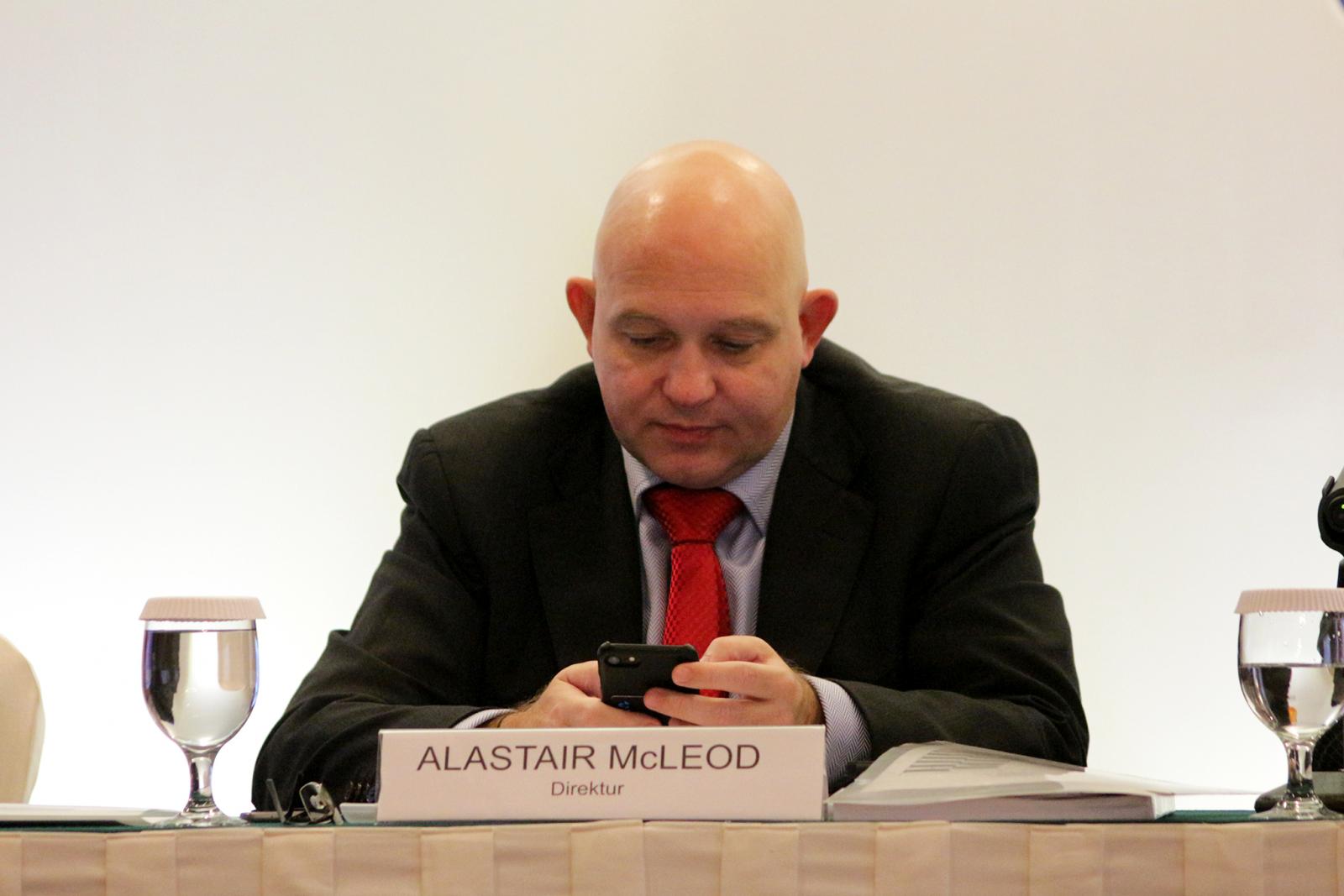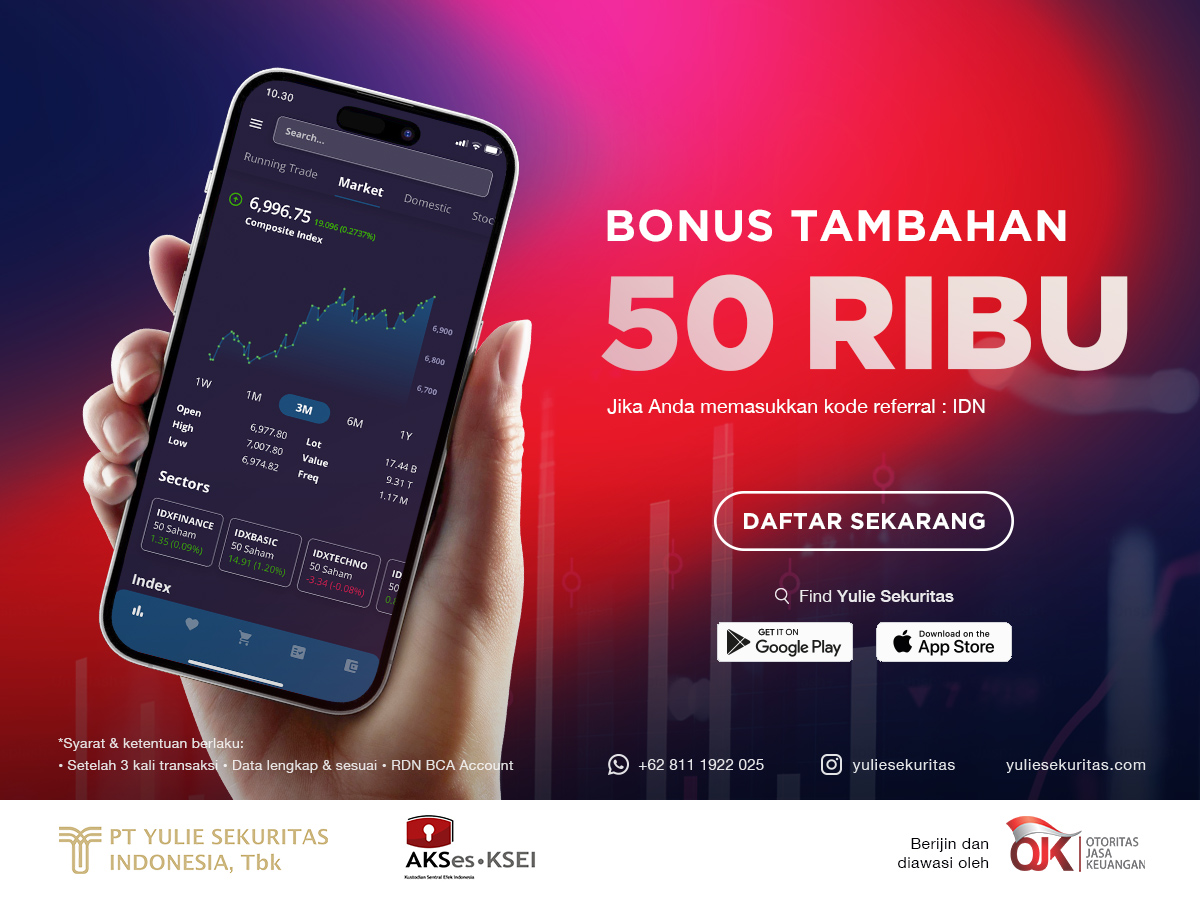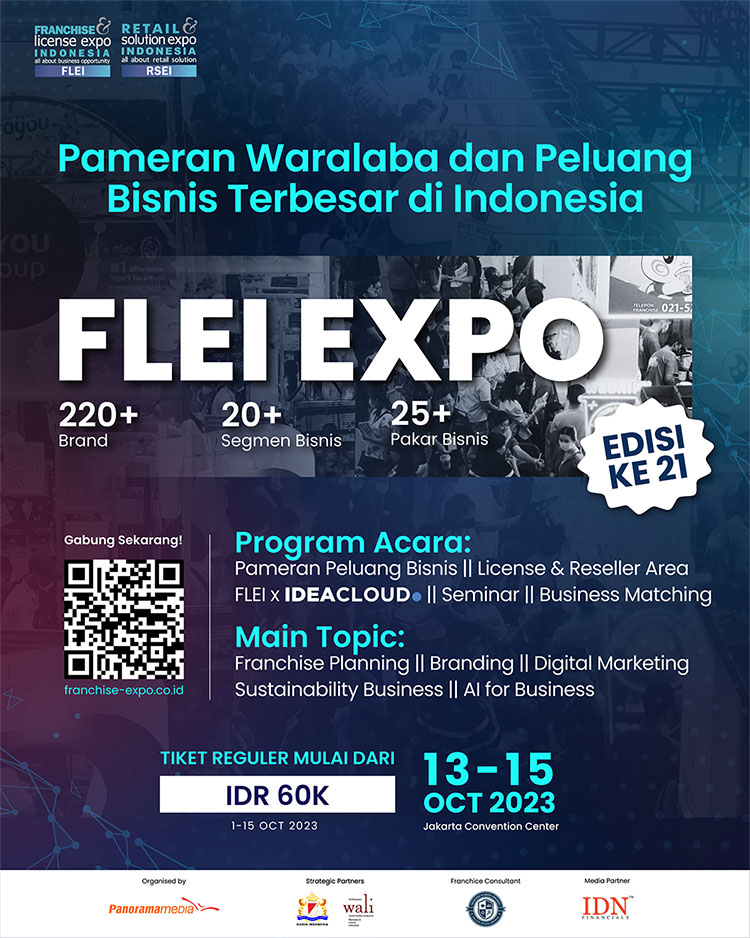Alastair McLeod: We’ll diversify to sectors where we have strength

NUSA DUA – Dato’ Low Tuck Kwong, CEO of PT Bayan Resources Tbk (BYAN) attains the title the Best CEO in Coal Mining and Resources in TOP CEO Awards 2023. Tempo-IDNFinancials gave the title during the awarding night at Sofitel Hotel, Nusa Dua, Bali last Friday (1/12). Under his command, BYAN rises to be the richest coal mining, recording the top five market capitalisation in Indonesia Stock Exchange (IDX).
In relation to this event, IDNFinancials interviewed Alastair McLeod, Director of BYAN, on behalf of Dato’ Low Tuck Kwong, a couple of weeks ago. Below is the interview.
Q. BYAN’s performance continued to grow during COVID-19 pandemic. What kind of strategy was being implemented during the previous pandemic crisis?
A. Okay, look, obviously, COVID was a difficult time for any company. But, our operations were, to a certain extent, slightly protected because they were--most of them are in remote locations.
So, there was a number of newly developed policies procedures that we had to bring about, and obviously, the primary concern was employee safety and welfare. So, it really depended if you were talking about the staff in Jakarta, the staff in Balikpapan, or the staff at site.
We changed the roster; we implemented--just like a number of other companies--work from home. We hope we went slightly further to avoid our staff having to use public transportation during the pandemic situation. We set about transportation allowances, so that--and partnered with Blue Bird. So, basically the staff could take taxis from the locale to get into the office.
The Jakarta staff, we split, really, into two groups. So, one group of essential staffs that had to come in, and the other half of the same category. And they staggered. So, they would work for, let's say, a week, and then, the others would swap in to try to minimise--
Q. So, you have them on shifts?
A. Yeah. And at site, obviously, it was slightly more extreme than that. We have to free up additional accommodation, so that anyone being mobilised to site--obviously had to take antigen test before going. But, then, even when they arrived on site, they were quarantined for a week or so. And then, also anyone that developed symptoms whilst at site was quarantined.
So, throughout the company, we instigated pretty much daily rapid tests as soon as we could get sufficient tests. So, that carried on for quite a long time, actually. It only ended in 2023, some time. So, most of the time until then--we decreased the frequency a little bit, but-- So, the solid team under the direction under Dato worked together to sort of formulate new policies and procedures, some allowances, and just some extensions of flexibility to work from home, for those that were able to, to ensure that the company could continue, and that the staffs were safe during that period.
Q. That was from the health protocol perspective. But, how about the operational perspective. Did the health protocol actually cause some delay in the operational and financial performance? And how do you see it?
A. Well, it undoubtedly costs more to ensure that all the staffs were safe, but that's a small cost for being able to continue with operations.
Yes, we undoubtedly would've been slightly less efficient, because there was time taken with quarantines, on the way there, on the way out, medical tests, and also treatment for those unfortunate enough to catch it. Undoubtedly had a negative impact, but I would say the impact was minimised due to the policies and procedures that we put in place. Otherwise, if we had had a major outbreak, then we would've had to take more drastic steps, so potentially closing a site, which thankfully never happened.
Q. What are measures and strategies that would be taken by Bayan if it faced the same situation?
A. Look, I think, if--you can never tell what's going to happen, again, you know. We had SARS before COVID, now we've had COVID. I think what it shows that companies have to be more flexible and responsive to the individual situations. You know, we had never been before being faced with a situation where our mine site was potentially locked down, airports were locked down, and countries were locked down. We'd never face that before. So, I think, what we've learned from that is just that we have to be responsive, and we have to potentially think outside the box to try and find solutions that enable continuity of operations.
We'd like to say we can plan for things in advance, but when you don't know what it's gonna be, it's very difficult to have detailed plans.
Q. So, you're just going to adjust to the actual situation?
A. Correct. It really depends what the situation is, what the crisis is.
Q. Do you think that the increased coal prices have saved you from this crisis? How do you think about it? What's your opinion?
A. Look, I think, there's two elements: The elements that we can control, which is our overall long-term strategy to increase production and invest in the infrastructure, so we can further increase production. Those are the things that we can control. So, we focus on that. Yes, they would've been slightly delayed because of COVID, but the strategy was still there.
In relation to coal prices, the peak that happened recently was more due to the Ukraine conflict, and other weather-related issues and demand issues around the world. We can never really predict that. So, yes, this time around, we benefitted from them. A few years earlier, when coal prices plummeted, you know, we had the opposite effect.
So, to us, there're really two distinct different time periods. COVID was the health concern, and that was the overriding concern. Coal prices going up, we were just benefitting from that, like a number of the other coal companies.
Q. Capability and competency of a CEO are essential factors in leading a company. However, personality aspects, such as integrity, care, and sense of responsibilities, also become the main pillar of leadership. What is your opinion on this?
A. Look, I think, one aspect that Dato is very good at is that he's actually been in the business for quite a long time. So, he understands the various roles and responsibilities of people. Because of that, he understands what is required to allow people to flourish, to allow people to act safely.
Relating it back to, say, COVID, there wasn't ever a question raised of, really, how much are the rapid tests going to be, or how much are the quarantines going to be. It was just something that was required, and therefore, that was the cost that had to be borne by the company.
So, to me, that shows that Dato is concerned about the welfare of the staff. And, however much infrastructure we build, we still need people to operate it. So, the staff, just like in most other industries, are critical to the welfare of the company. I think he's demonstrated, through the increased bonuses that staff have achieved over the last couple of years, that the welfare of the staff, local communities, and the company go hand-in-hand. And you can't have one side benefitting, when the other doesn't share the economic benefit.
So, as well as increased bonuses to the staff, we've been slightly more active in relation to charitable donations.
Q. How is your corporate social responsibility (CSR) program implementation at BYAN?
A. Well, there's a number of programs. We've worked with a number of universities in Kalimantan. And then, just recently, we've worked with another eight universities in the whole of Indonesia to hand out scholarships.
Again, Dato's very--believes very strongly that education is the way to increase the welfare of people. So, the eight universities started this year with 40 students per university. We'll keep going and expanding that each year by taking on a new intake. So, shortly, that will be reaching about 1,300 students a year. In Kalimantan university, Kutai University, I think it was about 360 students.
Also, we're very happy to say that we've been continuing sponsorship of the Indonesian para-team in the Asian Games that had been held in Indonesia. We're going over the Indonesian team to China just later this month. And, we also funded them when they went over to Cambodia. So, we've been working with them for a couple of years. The ultimate goal is to increase the participation of the Indonesian para-olympic team in Paris next year.
There's a number of different programs. But, again, most of those are initiatives that have been delegated from Dato. And, ultimately, which programs are preferred over others does come down to his beliefs and relation to helping underprivileged locals to increase their educational standard, so that they can have a sustainable benefit in the long term.
Q. So, it's safe to say that Dato have strong sense of responsibilities towards local and education, right?
A. I believe so. I believe his actions have clearly demonstrated that. Prior to the company making these donations in the last few years, he was personally making donations for a lot longer, before that, when the company wasn't as strong. So, yes, I think he's demonstrated, year after year, that he's committed to helping others.
Q. What does financial sustainability mean to you and Bayan?
A. Look, we're in business, just like most other businesses, to make money, okay? But it has to be not "at-all-costs."
So, as a mining company, we're under the microscope in relation to ESG concerns from banks, from insurers, from shareholders. And so, that, I think, feeds into the sustainability aspect of finance. Obviously we want to make money. We have positioned ourselves to be the one of the lowest cost producers in Indonesia and the world by investing in the infrastructure to make sure we can be cost-effective. But, we also, through the community development and CSR and ESG programs, do that in a sustainable manner, so that it's a business that is gonna be there for a long term.
Q. What is your future strategy to sustain Bayan’s growth? What are some big plans that you are preparing to achieve the company’s vision?
A. Bayan, although we've grown rapidly, that's primarily been utilising an existing infrastructure facility. And so, for the last three years, we've been building a brand-new logistical chain: new haul road, new overland conveyors, crushing and barge-loaders. And that is just being the initial phase that is just getting commissioned at the moment. So, by mid-next year, that will be fully commissioned, which will allow for the organic growth at our mine site. And so, we'll be aiming to double production, coming out of Tabang. So, we're currently doing about 40 million tons out of Tabang. Over the next five years, we're going to increase that to 80 million tons.
So, the growth story of Bayan hasn't really stopped, or hasn't reached its peak. We're, in the mining industry, or the coal mining industry in Indonesia, one of the newer players. And so, all of our licenses have actually quite a long time to go. So, we continue doing to invest.
That new infrastructure costs, in total, around about, or will cost about USD 500 million. So, that's what we've been doing in the background, and we'll start benefitting from it next year and the next few years.
Q. Amidst this green energy transition and sustainability issue, how does Bayan deal with it? Where does Bayan stand in this green transition issue?
A. I would suggest that the world is split into two halves, which is the developed world and the developing world. Developed world, most of those countries actually don't use that much coal nowadays. Other than, actually, India and America. All the rest of them have reduced their coal burns, and rapidly expanding renewables.
In this part of the world, in Asia and developing countries, coal is still critical to the GDP growth of most countries. On a power grid, you need a baseload. Now, the baseload is gonna come from coal; it's not gonna come from renewables.
And so, whilst there has to be a focus on increasing renewable capacities, there also, at the same time, needs to be a continuation of traditional fossil-fuel-based loads.
Now, that's not to say we can't try and get the baseload cleaner: carbon capture or carbon credits or carbon offset. And to an extent, we have instigated some green policies; we're building a solar power plant, wind stall, solar street lighting around our coal mine--which sounds a little bit strange, but it's true.
And so, yes, we have to be a responsible miner, but the requirement for coal is not going to disappear within ten years or twenty years, or in my view, even within thirty years. So, we just have to be as clean as we can be from an environmental perspective, and we work hard on rehabilitation, revegetation.
A number of our mine sites just got awarded--two of our mine sites, sorry--just got awarded some awards in relation to their environmental compliance. We do that on an on-going basis, so it's not as we close a mine, and then only think about the rehabilitation. As our mine progresses, in geographical areas you mine out, the area that we've finished using is rehabilitated, revegetated. The mines department inspect it cordially for three years. Maybe, we have to replant it, if the growth isn't there.
And we also do monitoring for biodiversity and the rehabilitation of animals at our mine sites in Tabang. We put up timelapse cameras, and I'm happy to say that we have snow leopards coming back, we have wild boar, we have a lot of other--bears coming back in. and this is rehabilitated mined out areas.
So, I think being a responsible mining company is where we can try and differentiate ourselves, and that's how we can continue to operate and comply with the ever-tightening sustainability and environmental controls.
Q. Would you opt for diversification? Is there a diversification plan going on? Nickel is the hot issue right now; would you consider that?
A. Would we consider diversification? Yes, undoubtedly, we would consider diversification. We've looked into a number of different projects.
I think when people say green and mining diversification, sometimes, you're not totally taking account of the environmental impact of mining the new metal. Yes, the new metal is required for electric vehicles, but where the electric vehicles gonna get that power? Historically, it's been diesel. If they go to electric vehicles, then, actually, part of the grid is still being powered by coal. So, is that green?
And then, in relation to the actual mining, most of the mining happens in the remote locations. Therefore, the energy consumption of those mines would typically be diesel, which, again, is not necessarily environmentally green.
So, I think, you don't become a green company just by diversifying into nickel or lithium or something like that, because far deeper into trying to ensure that to the extent you can, you decarbonise any stage of the process from the energy that you're required to do the mining, to do the construction, to do the transportation. So, no, Bayan's resources will definitely diversify in the future. But we still have, on the other hand, the expansion of our coal operations. So, I think you'll see that they'll go hand-in-hand. And when we identify the project that we like, you'll see Bayan's resources diversify into it.
Q. And would you try to enter green business?
A. I don't really think we are going to. We're already doing solar; we'll do more solar that are linked to our own requirements. And in relation to the community development programs, we do in the surrounding areas. That makes sense to us.
Suddenly going and building a solar power plant and supplying electricity to Singapore, I don't really think that's our forte. So, we still have to diversify to an industry and the business where we have--we believe we have--strengths. So, working in remote locations, logistically, obviously within Indonesia; working with the local communities, and the local government, and central government; we've got a good level of experience and understanding of how that works. So, those makes sense.
So, there will be diversification, but I don't necessarily think it'll just be the same as other companies. (LK/ZH)

